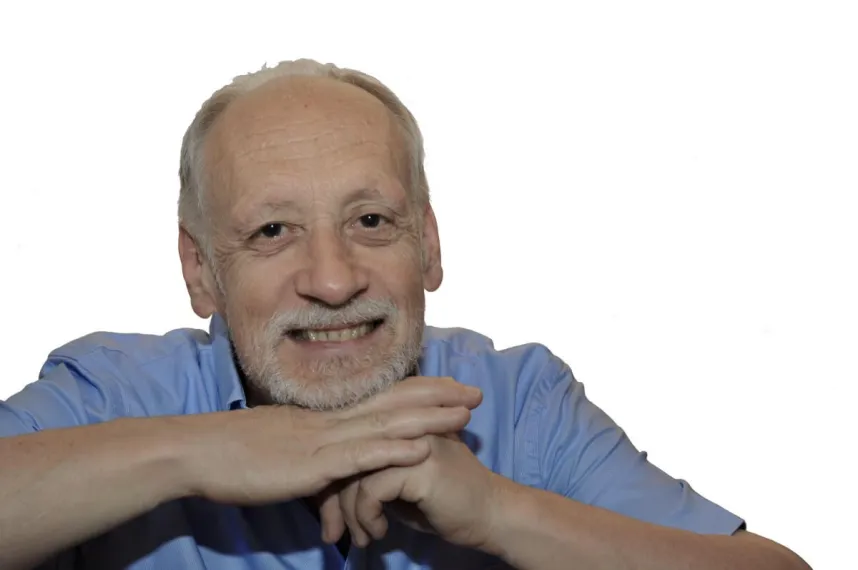Constructor University Physics Professor Dr. Nicolas Gisin wins 2023 Micius Prize for Quantum Physics
Quantum mechanics has already left an indelible impact on today’s society and lies at the heart of many of our indispensable modern technologies, despite it only being discovered in the early 20th century—young in physics’ terms. Founded in 2018, the "Micius Quantum Foundation" was established to support and promote research in the field of modern quantum physics. The annual “Micius Quantum Prize” recognizes outstanding contributions in the field of quantum communications, quantum simulation, quantum computation, and quantum metrology. Taking home this year's Micius Quantum Prize is Prof. Dr. Nicolas Gisin, Member of the Constructor Group Strategic Advisory Board. We spoke with Dr. Gisin about his connection to physics, the Micius Quantum Prize and what makes Constructor University special.
Dr. Gisin, how did your fascination with physics and quantum mechanics begin? Is there a singular moment you can look back to where you knew you this is what you wanted to do with your life?
My fascination for quantum physics came very quickly after the first lectures on quantum mechanics in my 2nd year at Geneva University in 1973. The fact that there is an entirely different world just beneath us and that one can enter this world by mere brut intellectual force captivated me immediately. The next high point for me was the following summer in 1973-74, when I went on holiday to south India, where I read the review paper by Clauser and Shimony on Bell inequalities. Since then, I knew I wanted to dedicate my life to quantum non-locality—the possibility to violate Bell’s inequality thanks to quantum correlations.
Was there someone who was instrumental in your becoming a student of physics and quantum foundations?
No, not to become a physics student. However, my personal encounters with John Bell had tremendous impacts on my dedication to quantum non-locality. In parallel, my experience in industry opened my eyes to the world of start-ups, already in the late 1980s.
Speaking of startups, you founded IDQ, a company that “harnesses light to develop and industrialize advanced quantum products and technologies for organizations to ensure long-term protection of data and public safety.” What are some of the challenges you experienced turning your research into a business?
While IDQ is quite successful, challenges, however, come in a never-ending stream. Presently, one challenge that occupies me is the balance between growing up from a physicists-based company to a solution provider company, while maintaining the creativity of physicists.
You have just received the Micius Quantum Prize for 2023. It’s a very prestigious award given out annually. Where does this rank among your long list of achievements and what does it mean to you?
The Micius prize is a very prestigious one, indeed. However, it is not my first prize. Nevertheless, it ranks among the very top ones, next to the John Steward Bell inaugural prize from Canada and the Marcel Benoist prize of Switzerland. All the prizes are clear recognition of my deep dedication to my professional life, it is nice and somewhat important that my hard work gets some recognition. In the end, I believe this is very human.
You mentioned your alma mater Geneva University, where you are also Professor Emeritus. In addition, you are a Member of the Constructor Group Strategic Advisory Board and thus, closely connected to Constructor University. What appealed to you about the university here in northern Germany?
I very much believe in human knowledge, in the possibility that human cultures accumulate knowledge over many generations, even centuries. This goes way beyond individuals. For a few centuries now, the accumulations and transmission of these bodies of knowledge have been concentrated in universities. I have tremendous respect for universities. Hence, when I had the chance to contribute to the development of a new university, Constructor University, I was immediately attracted. My main contributions are in performing high level research and as an ambassador within the broad scientific international community.
How do you see Constructor University’s impact on the field of quantum mechanics?
There is space to be occupied in the combination of foundational research in quantum physics, in quantum technologies and in quantum software. There are not many places where these three topics are developed next to each other, covering a very broad range from very foundational research, quasi-philosophy, to applied technologies and software.
On a personal note, you played field hockey semi-professionally, at the highest level in your native Switzerland. Are there any similarities between the sport and physics? Are there aspects of field hockey that have inspired or helped you in your work?
Yes! Team sports are excellent to prepare people for any career, where teamwork is essential. This is obviously the case for start-ups. But it is also essential in scientific research: contrary to the illusion provided by the legend of Einstein, successful scientific research is carried out by teams.
Questions answered by:
Nicolas Gisin | Member of the Strategic Advisory Board, Constructor University
presse@constructor.university
